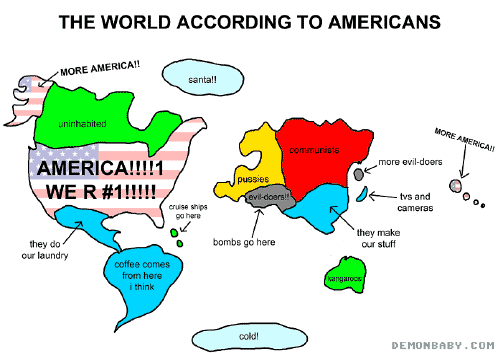US Now Issues A Worldwide Travel Alert
Change every place except the US to "unsafe"

NEW DELHI: For citizens of the United States, no where in the world is safe as the US State Department has issued a worldwide travel alert in response to “increased terrorist threats.”
According to a statement released by the State Department, “Current information suggests that ISIL (aka Da’esh), al-Qa’ida, Boko Haram, and other terrorist groups continue to plan terrorist attacks in multiple regions. These attacks may employ a wide variety of tactics, using conventional and non-conventional weapons and targeting both official and private interests. This Travel Alert expires on February 24, 2016.”
“Authorities believe the likelihood of terror attacks will continue as members of ISIL/Da’esh return from Syria and Iraq. Additionally, there is a continuing threat from unaffiliated persons planning attacks inspired by major terrorist organizations but conducted on an individual basis. Extremists have targeted large sporting events, theatres, open markets, and aviation services. In the past year, there have been multiple attacks in France, Nigeria, Denmark, Turkey, and Mali. ISIL/Da’esh has claimed responsibility for the bombing of a Russian airliner in Egypt,” the alert continues.
Meanwhile, Brussels remains under high alert, with with raids and arrests in the Belgian capital following a fresh appeal from French police. Investigators and officials believe that the brutal attacks in Paris ten days ago were organised in Belgium.
At least one suspect, Salah Abdeslam, a French citizen who grew up in Belgium, remains at large.
In Paris, French police are presently examining what appears to be a suicide bomb belt dumped on a street, said to resemble belts used by the attackers.
Strikes on Islamic State strongholds have also increased, with Russia, the US and France targeting ISIS oil tankers in the last few days. France is pushing for a stronger international coalition against ISIS, which seems to -- for now at least -- be bringing Russia and the US on the same page, with the latter’s opposition to Syrian President Bashar al Assad taking a backseat.
The UK’s David Cameron, speaking in Paris, said that it was his "firm conviction' that the UK should join air strikes in Syria but the decision would be up to MPs.
Australia meanwhile has said that it will not send combat troops to fight Islamic State, although it remains part of the coalition fighting the militant group. Prime Minister Malcolm Turnbull’s recent comments on ISIS following the Paris attacks contrast heavily with former prime minister Tony Abbott's description of the militant group as a "death cult".
At the time of writing, Syrian troops backed by Russian airstrikes captured areas from the Islamic State group in the central province of Homs.“A big victory was achieved by our heroes,” said a Syrian TV reporter as the capture of Mheen and Hawareen helps secure the highway linking the capital, Damascus, to the city of Homs.
The success of the ground troops may be an indication of what the world will be seeing in reference to Syria and the Islamic State, where Syrian troops loyal to President Assad -- whom the US-led coalition has been vehemently opposed to supporting -- may start seeing gains as Russia and the US begin working together and beating the Islamic State finally takes precedence over other power dynamics in the region.



